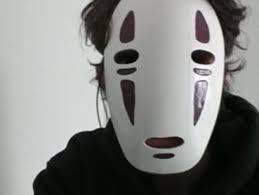February 4th, 2019
What do pot and heroin have in common? Nothing, says poet John Sinclair — which is why he is suing
John Sinclair is famous for many things. He’s a poet, civil rights activist and, certainly not least, one of Michigan’s leading potheads.
His conviction to 10 years in prison in 1969 for selling two joints to an undercover agent became a cause célèbre, attracting John Lennon, Bob Seger and Stevie Wonder to his aid.
Now, 50 years later, Sinclair has a new cause. He is suing the Michigan Board of Pharmacy to erase marijuana from the state’s list of controlled substances. If he is successful, pot would no longer be in the same category in Michigan as drugs such as heroin and cocaine.
Charged with a DUI or Drugged Driving?
Contact Komorn Law… 800-656-3557
Sinclair’s conviction was overturned by the Michigan Supreme Court, which ruled his punishment unconstitutional. The landmark case also barred the government from using electronic surveillance without a warrant..
Joining Sinclair are the Michigan Medical Marijuana Association, the Michigan Chapter of the National Organization for the Reform of Marijuana Laws, pharmacist Paul Littler, autism researcher Christian Bogner and medical marijuana patient Josey Scoggin.
Attorney Michael Komorn said the placement of marijuana as a Schedule I substance in Michigan — formally defined in the Public Health Code as a “high potential” for abuse and no accepted medical benefits — is entirely contradictory to the formation of both the medical marijuana industry and the recent passage of Proposal 1.
“Marijuana can no longer be considered harmful,” Komorn wrote. “Because of its contraband status, the mere suspected presence of marijuana is sufficient to establish probable cause to raid citizens’ homes and forfeit their property. Under current case law, there is probable cause to search every single medical marijuana cardholder.”
While Proposal 1 effectively legalized the adult possession and recreational use of marijuana, Komorn said its ranking within the Public Health Code could open the door for unwarranted police enforcement. He also contended Child Protective Services could lean on the list to make custody decisions for pot smoking parents.
“The continued placement on the public health code defines marijuana as a narcotic or some type of dangerous substance,” Komorn added. “It completely contradicts the regulatory structure that allows for medical marijuana. It’s not a dangerous substance and needs to be removed from that list immediately.”
Komorn, however, couldn’t offer a single example of an unlawful search and seizure since the passage of Proposal 1. Sinclair also recognized the lawsuit could be more a symbolic gesture than a mechanism for meaningful change. For him, it’s more about state recognition that the board’s scheduling structure is flawed.











